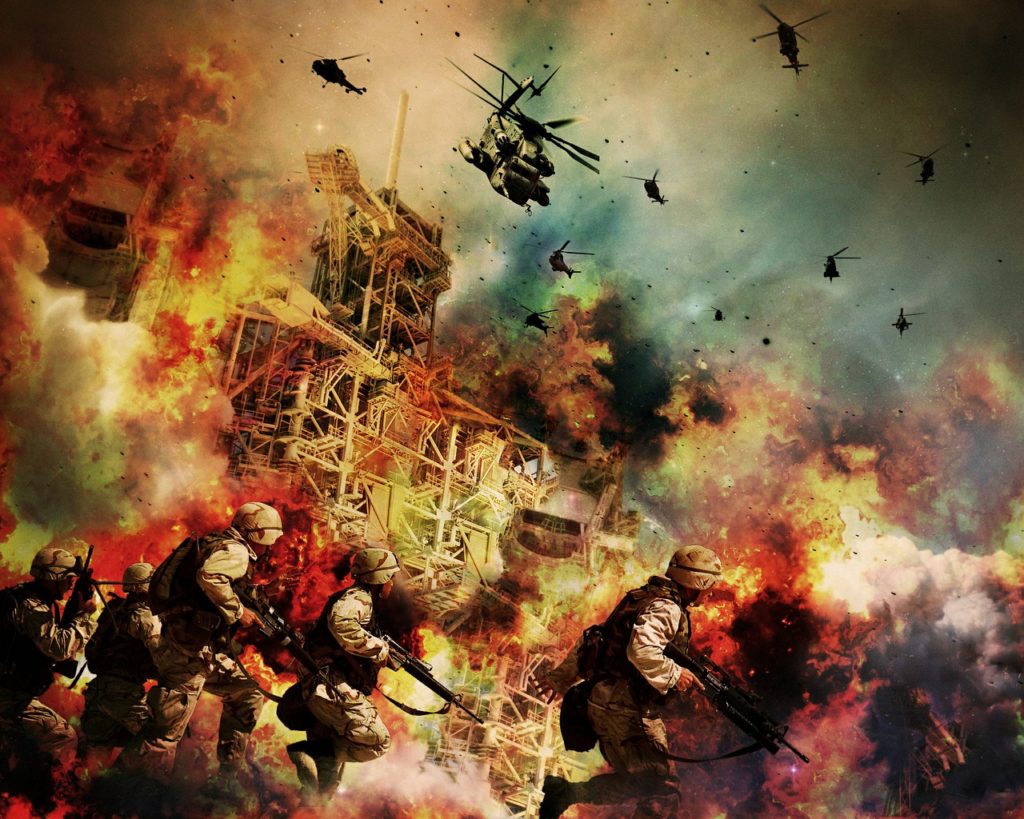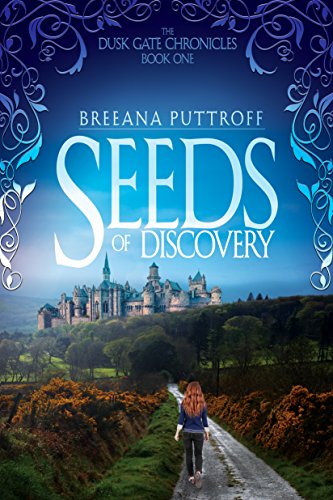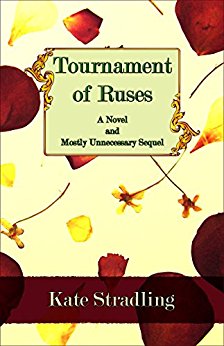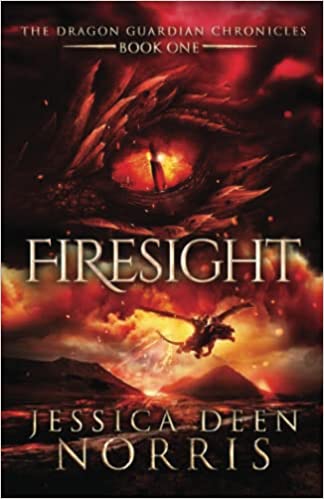
Everything written here is my own opinion. I hope you find some portion of it helpful; as for any portion you don’t find helpful — discard and disregard. My purpose here is not to dictate to the world what “noblebright fantasy” is, or how its heroes should behave; but rather, to add my own voice to those of C.J.Brightley and others wishing to contribute to a body of ideas about the topic.
I will be concentrating on . . . war stories in noblebright fantasy. What makes “military fantasy”, or war stories set in fantasy worlds, different from other fantasy fiction?
War in Noblebright Fantasy
I try to keep my focus away from impressing the reader with the plot, and let the characters do the heavy lifting of impressing the reader. For what it’s worth, I’ve always been impressed by this quote attributed to Jessica Lynch: “The truth of war is not always easy to hear but it is always more heroic than the hype.”
What is “the hype” — and how can you separate it out from “the truth” of a given situation, particularly one that’s never happened (except in your fantasy world)? Well, I consider “hype” to be anything written with the primary motivation of getting people excited about war, looking forward to war, portraying it as one big action sequence (or even one big party). In what I’d consider “war hype”, the average wartime government’s portrayal of its current enemy has no redeeming features whatsoever, while the government’s own forces and personnel can do no wrong. The friendlies are merciful; the enemy, cruel. The friendlies fight for a just cause; the enemy, for blood-lust and greed. And so on.
“The hype” also tends to downplay just how confusing or terrifying a combat situation (let along a full-scale battle) can be. . . or how surreal.
Wartime Deaths in Noblebright Fantasy
I’m sure David Weber, author of the Honor Harrington series, is not the only author to say something brilliant on writing war fiction, but he’s got the best quote I’ve yet found about it:
“I know from the moment that I introduce them that some characters are going to die . . . because of something the story demands. And some of them end up dying because I write military fiction and in military fiction, good people die as well as bad people. Military fiction in which only bad people – the ones the readers want to die – die and the heroes don’t suffer agonizing personal losses isn’t military fiction: it’s military pornography. Someone who writes military fiction has a responsibility to show the human cost, particularly because so few of his readers may have any personal experience with that cost.”
What a War Story is Not
While it’s common for fantasy tales to use battles as plot devices, most of them (noblebright or not) are not “war stories”. Most fantasy tales are about the struggles of a single protagonist (who everyone hopes will be powerful and compelling) — or a “merry band” of adventurers bonding through long periods of watching each other’s backs. But mostly, they won’t be “war stories”, no matter how many hordes of enemies they mow down. This is doubly true when their enemies have no redeeming feature (and thus provide guilt-free carnage). There’s a reason why stories about a zombie apocalypse tend to be classified as “horror” or “survival” instead of “war”.
War stories are not about hidden artifacts of world-shaking significance; they’re not about a special “Chosen One” directed by fate to be the only one capable of victory. In fact, I’d say that most fans of “war stories” want protags who are fairly ordinary. These protags know they’re ordinary; they’re not Conan, they’re not Gandalf, they’re not Ender or Richard Cypher; in sci-fi, they wouldn’t be a starship captain or an alien/android with wacky powers — but they’re stepping up to the plate to face danger and do their very best, just like all their buddies are. War stories are about the struggles and dreams of the multitude of regular people who fight: to win, to replace tyranny with freedom, to see home again one day, or even just get out in one piece.
In any war story worthy of the name, any character thinking “This war is all about ME!” is, almost certainly, dangerously delusional . A true “war story” is all about everyone unfortunate enough to be stuck in ever-present, deadly danger.
What a War Story Is
War stories are intensely social, since it is about *groups* of people struggling against each other. Even spies poring over cryptograms alone all night in the basement of a “safe house” are intensely aware of (or at least, curious) about how their efforts might save — or doom — hundreds or thousands of lives.
A “war story” is one where the war, itself, is important to the lives of the people fighting it. In fact, it’s important enough that they believe that killing other people is justifiable. If they have faith in their leaders, maybe they believe that if they lose the war, they will fail to save their nation from invasion (and then, perhaps, life will not be worth living — or their families may starve, or be slaughtered). They may even feel pity for their fellow humans fighting in the enemy army (after all, they must be brainwashed, or terrified of disobeying their own cruel government).
On the other hand, if the people of a wartime nation disdain their leaders as bloodthirsty fools, then perhaps they’ll be hoping that the war comes to a stalemate that goads both nations into making peace.
War Settings
Battlefields and war zones are horrifying, and they’re not so easy to find your way out of. Most people will be frightened out of their wits, sometimes too scared to even be rational. Fits of rage, sadness, or grief will happen so often that a person may lose their ability to relax and experience joy or relaxation (or at least, seem to). On the other hand, happiness and optimism may become so rare that they can experience euphoric joy at the merest bit of good news, or the smallest act of kindness.
Of course, war can also be very boring. Since everyone is expected to literally be ready for anything the enemy might try, the demand for constant vigilance can make it hard for a person to find diversion that isn’t prohibited (or dangerous). The bar of what they find “exciting” can get very low.
Wars turn cities and towns into miserable, smoking ruins that are barely habitable, requiring decades to rebuild (if indeed, they can be rebuilt at all). This can lead to new sources of tragedy: beautiful natural scenery being destroyed, animals wiped out, farms and orchards laid waste, families facing starvation, centuries’ worth of art and architecture turned to dust.
These same factors can also lead to hope, of course; maybe some characters who survive will go on to preserve the land, cities or culture the war has wrecked. But it’s normal for some rebuilding projects to take generations to restore a small part of what might have been lost in a couple of weeks after a city’s fall to invaders.
Fantasy offers magic to mitigate much of this, but your magician comes sweeping in with a simple fix for such distressing long-term problems, you risk altering the setting to the point where it’s no longer a war story. The backdrop should be bleak enough to make it cry out for heroes of the noblebright variety.
The Noblebright Fantasy Action Hero – In A War Story
We all know what a “hero” is, in the sense that it’s often used by writers as a synonym for “protagonist”. But the “noblebright” brand, to me at least, demands that its literary heroes should share at least some characteristics with the reader’s understanding of the conventional use of the word. Not everyone will have the exact same definition of what a “hero” is. . . so for what it’s worth, here’s mine.
Hero: Someone who knowingly and willingly exposes themselves to risk or hardship (such as pain or death) with the primary motivation of sparing others the same (or similar) risk or hardship.
While “hero” is a word once reserved for males, everything I’ve written here can (and should) be applied to characters of any gender (including characters who are genderless, transgender, or even other possibilities beyond those now existing in the real world). Sexual orientation has no effect on whether a character can be heroic (or to what degree).
But Isn’t Noblebright About More Than Just Characters?
Of course. It’s also about plot, theme, and setting. So how “heroic” actions affect those aspects of the story are also critical to consider. A colonel who accepts a huge number of enemy as prisoners may be acting with a virtuous motive (she’d rather spare their lives than kill them). Sometimes, this will work out as the colonel would like, and she may even reap rewards: maybe her lieutenants admire her show of mercy to the defeated, or her superiors will be grateful for giving them a victory with a much lower number of casualties than expected. Of course, the colonel’s mercy could also backfire badly on her — her generals could overrule her and order the prisoners barbarically executed, giving her an undeserved reputation for ineptitude, cowardice or cruelty.
Even command decisions that seem trivial at the time have the potential to “blow up” into something suddenly noteworthy, for good or ill. Most wartime military commanders will experience some reluctance toward bending rules (even for the loyal and the heroic), for fear of consequences that no one could have seen coming. These worries are well-founded, for wars are chock-full of events both unforeseen and unforeseeable.
How Are Soldiers Different From Civilians?
Soldiers are fundamentally different from many conventional “action heroes”. Yet, in most fiction, they tend to be much tougher (and much more fearsome) than civilians. Why is this?
Many people would answer “combat training” or “armament”, but history does show times that those advantages alone often don’t win the day. Two of the most overlooked reasons of why a team of soldiers are likely to beat a team of civilians are: a) soldiers are trained remain alert for long periods of time, and b) soldiers are trained to instinctively remember that they are fighting as a group.
This can be very advantageous to writers who want to write about multiple characters; to perform most effectively, the characters must never forget that supporting each other, with every individual playing their own part to the best of their ability, is the best way to win or at least, survive. When characters do forget this, consequences can range from angry lectures all the way up to bloodbaths.
Characters fighting wars or battles in a noblebright setting will tend to respect and support their comrades, giving you more character relationships to write about — the more selfish characters will stand out, in a way that will provide you more character conflicts to write about.
Make the Hero’s Struggle a Struggle
In my opinion, this is why I believe noblebright fantasy stories do well to steer clear of the “super-characters” that dominate so many other brands of fantasy. Keep writing to your target audience! War entails large groups struggling together in concert (against other large groups who are generally just as determined.) Membership in one of those “large groups” is sure to contain a lot of the meat of the story. While combat superstars serve a purpose in fiction and can be very fun to read about, they tend to leave some of noblebright’s intrinsic advantages “on the table”.
Give the Hero Limitations
In my opinion, the hero must not be “the toughest”, or at least not the best at everything. When the hero’s courage or combat prowess is tested, he must sometimes fail. He must occasionally make mistakes, or the “wrong call”, to occasionally doubt himself. And sometimes, the randomness of battle and “fog of war” will simply cause him to miss a golden opportunity for glory (or to fail at rescuing those he holds dear). With no risk, there’s less investment for the reader.
All this can provide dialogue between the hero and various comrades, which can offer character development in many directions. It can also offer opportunities for exposition of backstory or other details of setting and plot — which can be very challenging when writing fantasy stories, which can have so much more to introduce to the reader than stories of other genres.
Don’t Be Stingy with the Hero’s Enemies
The hero must occasionally get the tar beaten out of him; maybe even volunteer for it because “someone’s gotta do it”. . . and there are lots of ways to give your hero opportunities to get his butt handed to him. This can be a fight with an inherent tactical disadvantage, like holding a bridge, rescuing someone from the enemy’s clutches, or even pulling off a purely symbolic stand whose only purpose is to provide needed inspiration to prevent everyone’s morale from collapsing.
The hero must also, at times, taste extreme frustration; feel hopeless; be defeated or humiliated. Wars are made out of numberless, neverending struggles (many of which end up forgotten). A war where the hero never loses, never feels tired or scared, or faces any setback, is boring. This applies to all aspects of the hero’s endeavors, including combat. Give the bad guys their due!
Of course, to get through these dangerous situations, the hero does need to be capable enough to deal with the situations you throw at him. He can be above average — perhaps, in one or two regards, even exceptional. But avoid making the “the best” at everything. Maybe the enemy’s scariest intimidator can’t rattle him; but maybe their best marksman can shoot more accurately, or maybe their fastest messenger can run (or ride) faster.
This also applies to avoiding, when feasible, giving the hero (or his “side”) a 100% monopoly on the moral high ground. The popularity of zombie fiction is, in large part, the freedom from guilt most of its stories gives its characters for showing no mercy to the living dead — but if the hero is fighting sentient beings whose species possess a broad range of personalities, your fantasy war can probably afford more than one reasonable point of view.
Sexual/Romantic Partners
The hero’s romantic / sexual partners may include someone he does not love (or even like very much) — after all, war’s constant reminders of death will inevitably cause some people to seek comfort or pleasure whenever they can. But, I strongly suggest that he respect his lovers.
A heroic character can even have an affair with someone he or she considers an enemy (or even “evil”) if he feels their options were sufficiently limited to mitigate their guilt; if their choices were somehow forced, or their loved ones somehow vulnerable or compromised. Of course, he might also hope to gain critical information to help whatever cause he fights for. However, in such a case the respect I mentioned earlier must still be present, expressed, and acted on, or the hero may be perceived as just taking selfish advantage of a vulnerable person (because everyone is vulnerable in a war zone).
Nerves of Steel
In my view, it’s okay to sometimes show your hero as fearless. Fear is not always logical — people in the real world who are terrified of lightning strikes and shark attacks may be very careless about driving too fast (which is statistically a lot more likely to get them killed!) Fear is also exhausting, and some people may seem to “shrug it off” because they just don’t have the energy to spare on being afraid of a given danger (especially one they’ve already faced a hundred times).
However, fear is an essential part of war. And during wartime, even when all is quiet, I suggest you let some of the hero’s personal regrets, failures and shortcomings — real or imagined — come creeping back to him, when he’s lonely, lost, cold and wet, ravenously hungry . . . or on the run.
This is a guest post by John Blackport. John has lived in New England all his life. He is fond of exercise, history, calculus, most animals, and lots of curry. He authored Raingun several years ago and has published three more volumes so far of The Talan Revolt.




